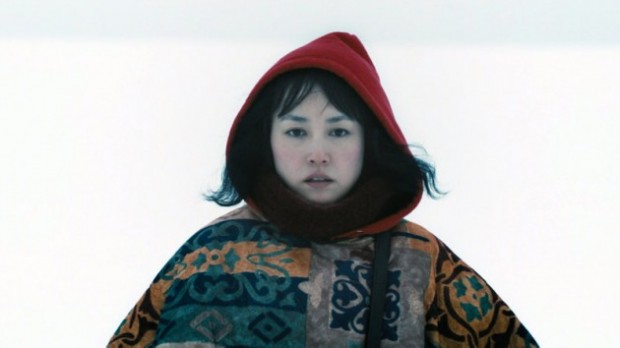THIS IS A TRUE STORY.
The events depicted in this film took place in Minnesota in 1987. At the request of the survivors, the names have been changed. Out of respect for the dead, the rest has been told exactly as it occurred.
The preface of Joel and Ethan Coen’s 1996 dark comedy film, Fargo, is perhaps one of the most discussed in recent cinema history. Claiming itself to be based exactly on factual events, the authenticity of these opening lines has long been debunked as simply a device to set the tone.
No big deal. Screenwriters have been bending the truth since day one. We see the term “based on a true story” in film marketing all the time, and we typically regard those stories as having more weight, more tragic consequences, all rooted in the real life experiences of real people. Even if said films don’t hold a single grain of truth, we’re willing to look past it.
“If an audience believes that something’s based on a real event, it gives you permission to do things they might otherwise not accept.” – Joel Coen, MTV
This brings us to Kumiko, The Treasure Hunter – the latest offering from another set of brothers, Nathan and David Zellner – the tale of a young Japanese woman who risks everything in her search for Fargo’s hidden ransom money, buried in the snow and lost forever. The titular Kumiko (Rinko Kikuchi), a timid, lonely Tokyo office worker, leads an increasingly stressful professional and personal life, finding solace in the belief that Fargo’s briefcase full of money is still buried, waiting for her to discover it; a desperate beacon of hope.
With only a pet rabbit to keep her company, Kumiko spends her evenings poring closely over a battered VHS copy of Fargo, decrypting faces and deciphering dialogue through the tape’s snowy static. Kumiko’s obsession (or as she even claims, her “destiny”) with the buried money ultimately leads her on a quest to find Fargo’s lost fortune. Kikuchi’s wide-eyed, downtrodden portrayal of the young woman lends a great sympathy to a naive, if hopelessly misled, character.
Cinematographer Sean Porter wonderfully recreates the icy wilderness of the Coens’ classic, the wintery desert of the Mid-West proving an effective juxtaposition to the sprawling neighbourhoods of the Tokyo Kumiko has left behind. Her journey to Fargo, North Dakota, is long and treacherous, and – without proper winter clothing, money or food – foolish. Despite all these shortcomings, our protagonist soldiers on at a lightning pace, barely stopping to eat or sleep.
This determination, however, is the character’s greatest downfall. When Kumiko interacts with others, we realise the dangerous extent of her blind obsession. With broken English, little forward planning, and only a crude map of her destination, she gets impatient when local inhabitants can’t understand her, she is ungrateful to those who offer help – not to mention breaking several laws. It’s difficult to root for a protagonist who takes so many selfish mis-steps at the expense of others; in later scenes, Kumiko comes across as a Bizzaro World version of Amelie Poulain.
Whereas Amelie – another innocent, introverted girl living a similarly humble life – oozes compassion and devotes her time to helping others, Kumiko’s efforts are ultimately self-centred. In one scene, Kumiko abandons a taxi without paying the (somewhat large) fee, and we can’t help but sympathise with the driver. It’s a sobering, brief exploration of the consequences of a protagonist’s actions on peripheral characters. When you’re watching The Avengers destroy buildings in the middle of a huge battle next month, think about the thousands of faceless lives that have been ruined (or, if you actually enjoy having fun, don’t).
One could see Kumiko, The Treasure Hunter as a caution against blind faith, but it perhaps works better as a discussion about the increasing grey area that is authenticity in these “true” stories. In one scene, a police officer (played by director David Zellner), tries to dissuade Kumiko by asserting that (to paraphrase), “it’s just a film. Films are fake; documentaries are real” – fittingly, Zellner proposes a fascinating parallel between the film and its subject matter.
Kumiko herself is “based upon” the experiences of a real person; Takako Konishi became somewhat of an urban legend when her body was discovered in the winter of 2001, under similar circumstances. Once rumours spread about her alleged quest to find Fargo’s buried treasure, Konishi’s story became a perverse joke about losses in translation, or worse, an insulting stereotype about a tragically-naive Japanese girl.
“The loneliest of deaths transformed into something famous … entertainment.” – Paul Berczeller, This Is A True Story
In reality, Konishi’s infamous tale was largely the result of misinterpretation from the few with whom she had come into contact in her final days. Instead of a great quest to find the Coens’ fictional money, the more likely is story is one of a heartbroken, lonely and/or possibly terminally-ill young woman. Nobody can know for sure of Konishi’s real intentions in the hours before her death, but it’s worth thinking what her legacy means in regards to how we, as audiences, view “true” stories like hers – how many people chose to see Kumiko, The Treasure Hunter under the pretence that it was completely truthful? Does it detract from the viewing experience when we know the source material is false?
Filmmaker Paul Berczeller’s fantastic short documentary, This Is A True Story, addresses the myth around the “real” Kumiko and works as an interesting counterpart to the entertaining, but ultimately not very truthful, narrative film. Colm Laverty





